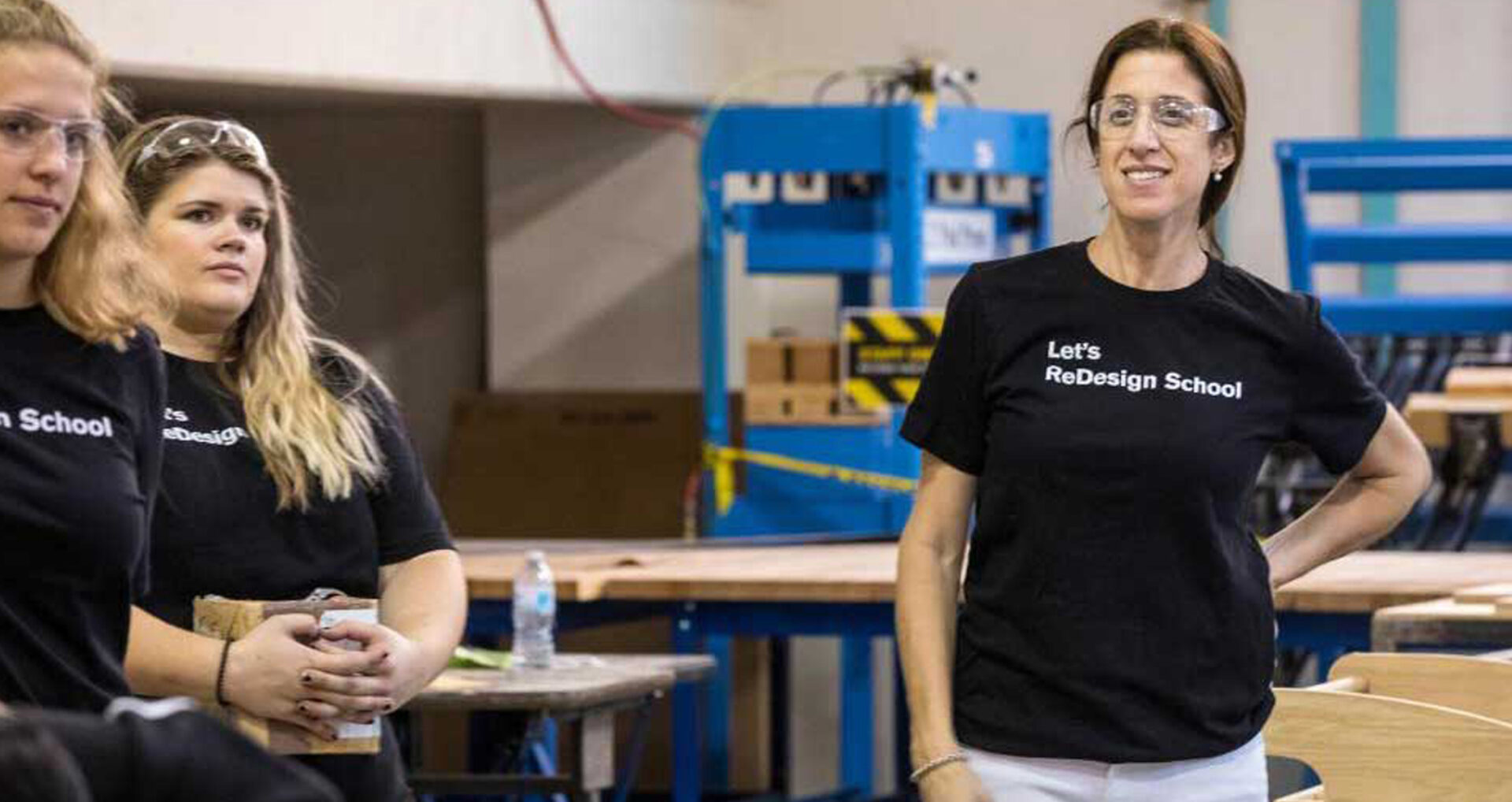The IIDA Foundation, in partnership with Interior Design Educators Council Foundation (IDECF), is pleased to present the 2021 IIDA Educator Diversity Award, sponsored by KI, to Milagros Zingoni Phielipp, IIDA, ASID, AIA. She currently serves as associate professor and director of the School of Interior Architecture, and director of diversity relations for the College of Architecture and Design University of Tennessee Knoxville (UTK).
Zingoni Phielipp started her journey as an educator in 2005 at Arizona State University (ASU) teaching architecture, urban design, and landscape architecture, shifting to interior design and interior architecture, creating the Master in Interior Architecture at ASU. She continues her career as an educator with the ethos to “Design for Public Good,” by diversifying the profession through student experience. She credits her background as a multicultural Latina immigrant for her approach to understanding diversity as not only a race issue, but also a need for being a global citizen—to be able to design with flexibility, empathy, and tenacity for a global range of needs in circumstances and environments.
“All our students will be designing for multiple audiences, and developing empathy and global competency is the first step to good design."
Milagros Zingoni Phielipp
Reflecting on the evolution of her teaching pedagogy, she notes that her teaching has evolved to cultivate an environment that fosters building interpersonal connections with communities outside the student’s own. Her students apply divergent thinking to explore emerging taxonomies, with the hope that they will leverage their education to empower the communities around them, becoming agents of change. Through public engagement, students gain an overall sense of what it means to design with community intent. She says, “All our students will be designing for multiple audiences, and developing empathy and global competency is the first step to good design."
Director of Interiors at SPS+ Architects Catherine Pieratt has worked with and mentored students of Zingoni Phielipp, and has said that her impact on her students is apparent, and describes a shared mission to amplify voices of the unheard. “Her approach to teaching pushes boundaries and is very much influenced by the social, political, and psychological development of humans. It bridges the gap between designers and diversified communities by creating a consciousness of acknowledgment, sympathy, empathy, and compassion as the foundation of a holistic design process.”
Past and present students of Milagros Zingoni Phielipp speak highly of their experiences in her studio, both of her curriculum, as an educator, and as a mentor. UTK student Erin Ganserer describes her commitment to partnering with local schools to provide students with exposure to the career at an early age, as well as encouraging students to share about themselves to begin experiencing empathy for each other before exploring empathy from a global view. “She is a visionary for the program while also being committed to her students—her ideas and plans are the future of interior architecture education.”
In her efforts to design with empathy, she is a beacon to students from different backgrounds who credit her with showing them how to embrace and overcome their own internal biases about what it means to be a foreigner, an immigrant, or a woman. “Coming from a culture led by men…she taught me how to speak my mind more often, trust my instinct,” says Dalal Altassan, ASU '20, “And how much strength a woman really has, what she can be capable of.”

“There is something about her that makes everyone feel included,” says Aleksandra Kojic, ASU 2021, “She saw my future long before I was even aware of it. It was the first time I did not feel like an outsider in the classroom.”
ASU 2011 graduate Edgard Moreno reflects on a studio project with Zingoni Phielipp, developing and building the Little Mexico Barrio Center, working with the community to center their needs and wants, including hiring the builders and landscapers that live there. Drawing a line through his classroom and studio experiences with her, he says, “Difficult as it may have been, our fearless leader was hell-bent in making a difference in the world.”
“It became clear then what Milagros was doing. For years she has been helping the development of people that are different from her; people that are of different age, sex, race and economic backgrounds—How can we possibly move forward as a whole without considering the needs of our neighbors and peers?”
When asked what this award means to her, Milagros Zingoni Phielipp reflects, “What does it mean to me to win this award? It gives me hope. Knowing that the profession recognizes the extent of civic engagement of our profession, and the ethical responsibility we hold as designers and educators to amplify the voices of others is imperative to serve the public good."
Read more about Milagros Zingoni Phielipp’s teaching, research and projects here.


All images courtesy of Milagros Zingoni Phielipp
